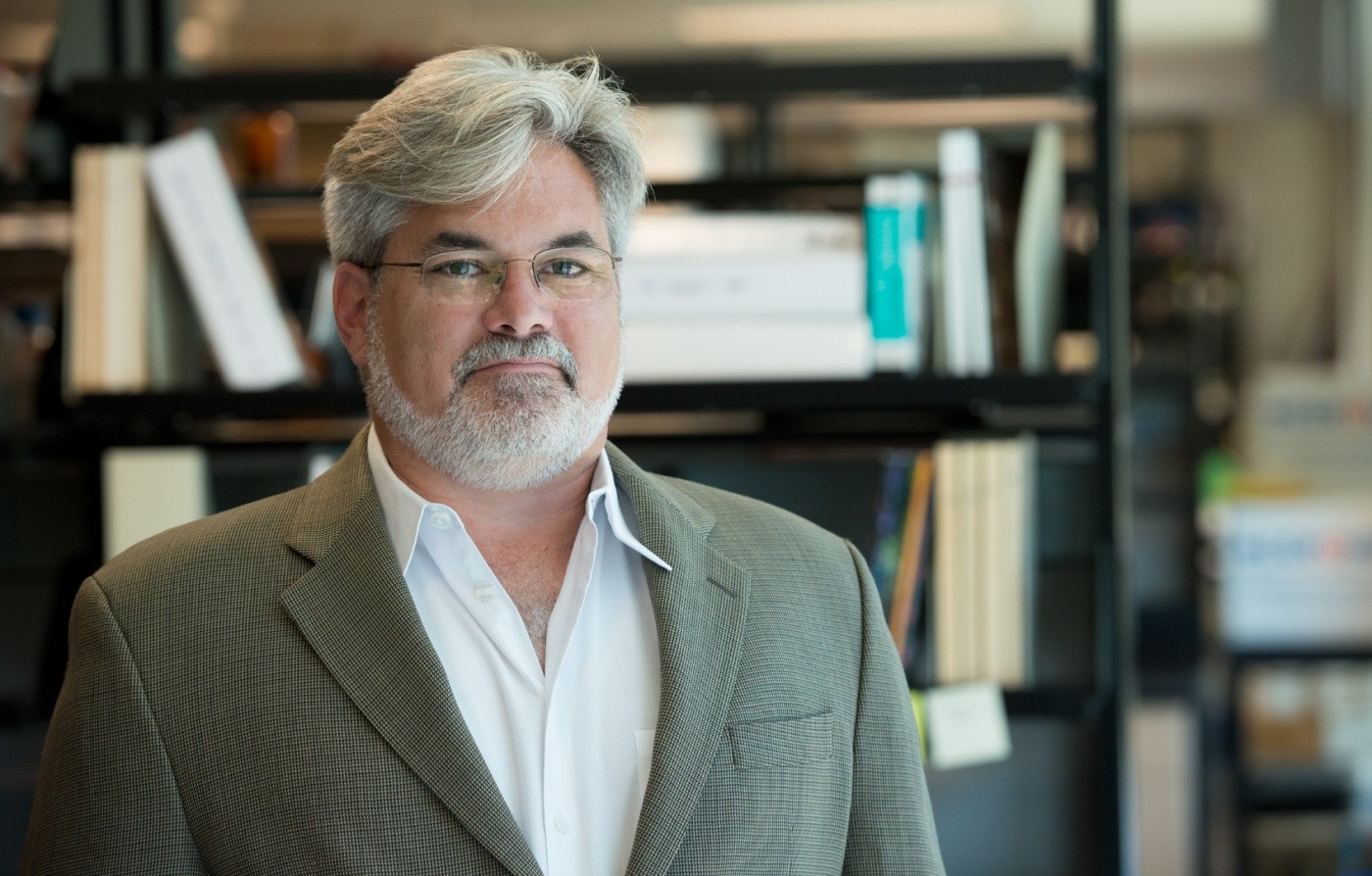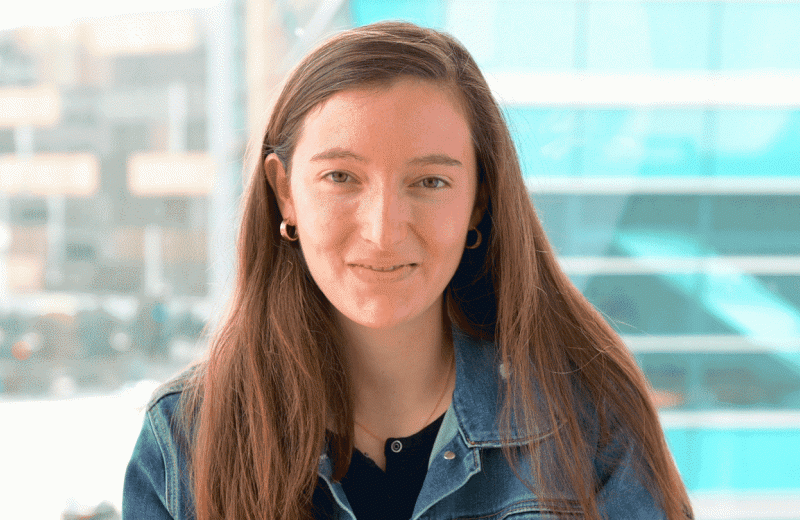Gladstone NOW: The Campaign Join Us on the Journey✕

Dr. Finkbeiner will use his revolutionary robotic microscope to uncover the detailed cellular mechanisms of the brain and advance our knowledge of debilitating neurological diseases. [Photo: Chris Goodfellow]
Despite myriad advancements made in biomedical research, there are still basic questions about our DNA and cell biology that challenge researchers—gaps in our knowledge of life science that must be filled in order to improve human health.
This summer, Gladstone Institutes’ senior investigator Steve Finkbeiner, MD, PhD, was awarded not one, but two prestigious National Institutes of Health Common Fund grants as part of consortia aimed at solving these essential problems.
The Common Fund was established by the NIH, calling upon the scientific community to address the most pressing questions facing biomedical research. Identified by the nation’s leading scientists, these issues span across the life sciences and are too large to be tackled by any one institution, instead requiring the collaboration of a team of experts.
“These projects are especially critical as they were created out of calls from the scientific community to foster research in these areas,” explained Dr. Finkbeiner. “These grants focus on strategic directions that may not otherwise be pursued through the usual mechanisms of investigator initiated grants.”
Different from other NIH initiatives that are funded purely based on a grant’s peer-review scores, the Common Fund program staff handpick from the most highly-ranked applicants, taking into account the investigator and institution’s level of innovation, history of collaboration, and how well the proposed project fits in with the overall goal of the initiative. In order to be awarded a grant, institutions must have a proven track record of taking strategic approaches to science using cutting edge technology. Programs supported by the Common Fund are expected to be groundbreaking—leading to the development of novel tools and technologies, or providing a foundation for fundamental research that can be broadly adopted.
“This special recognition and support for Steve is yet another strong statement of the transformative nature of Gladstone’s life science research,” said Gladstone Institutes’ president, R. Sanders Williams, MD. “Our investigators reveal the intricate mechanisms of life in both health and disease to define molecular targets that lead to cures.”
Dr. Finkbeiner’s team will use their revolutionary robotic microscope to uncover the detailed cellular mechanisms of the brain and advance our knowledge of debilitating neurological diseases. The first award will be used to investigate the unexplored parts of the so-called “druggable genome”—genes that have the potential to be used as future therapeutic drug targets. Dr. Finkbeiner’s group will use their advanced imaging techniques to probe individual cells, giving them an in-depth “physical exam” to test their structure and function. The goal is to understand the role of these genes and proteins and to see if they are involved in various diseases, and thus may one day serve as viable targets for therapeutic treatments.
The second grant is part of the Library of Integrated Network-based Cellular Signatures (LINCS) program. Dr. Finkbeiner’s team is focused on identifying the cellular signature of ALS, or Lou Gherig’s Disease, by investigating the basic cellular profile of induced pluripotent stem cells from patients with several types of degenerative motor neuron diseases. Dr. Finkbeiner hopes that these signatures will be the foundation for new therapeutic interventions for ALS—providing a better understanding of the cellular mechanisms involved and leading to improved modeling of how neurodegeneration occurs, and eventually developing ways to intervene.
“We’re very excited to be part of these two consortia,” said Dr. Finkbeiner. “Collaborating across institutions and integrating different methodologies will vastly further our knowledge, not only of neuronal cell biology, but also through the development of new technologies for data collection and analysis that can be applied to other areas of science.”
Meet Gladstone: Shijie Wang
Meet Gladstone: Shijie Wang
Shijie Wang, a postdoctoral scholar in Steve Finkbeiner’s lab, uses artificial intelligence, robotics, and stem cell technologies to uncover how brain cells die in neurodegenerative diseases like Alzheimer’s and Parkinson’s.
Profile Neurological Disease Finkbeiner Lab AI Robotic MicroscopyScience in Seconds | The Thinking Microscope: Research Powered by an AI Brain
Science in Seconds | The Thinking Microscope: Research Powered by an AI Brain
In this video, Steve Finkbeiner and Jeremy Linsley showcase Gladstone’s groundbreaking “thinking microscope”—an AI-powered system that can design, conduct, and analyze experiments autonomously to uncover new insights into diseases like Alzheimer’s, Parkinson’s, and ALS.
Gladstone Experts ALS Alzheimer’s Disease Parkinson’s Disease Neurological Disease Finkbeiner Lab AI Big DataMeet Gladstone: Christina Buselli
Meet Gladstone: Christina Buselli
Research Associate Christina Buselli describes her work in the Finkbeiner lab, her path to science, and the questions she wishes she could ask her grandfather
Profile Finkbeiner Lab



